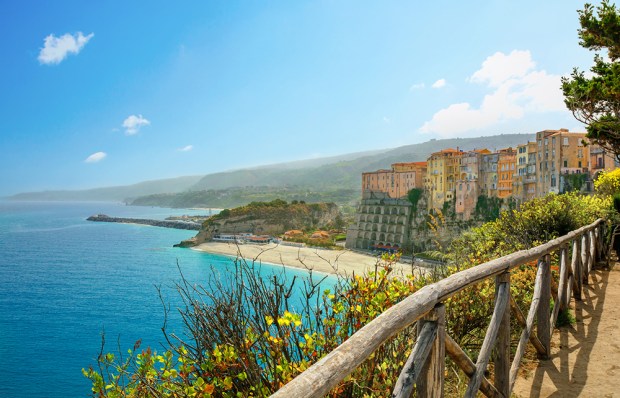Glyndebourne. There is no single quintessential example of English scenery, but this is one of the finest. The landscape is old, and verdant. There has been tillage and pasturage here for millennia, and the outcome is harmony, as if tamed nature has embraced man’s gentle mastery. On a sunny summer evening, earth has not anything to show more fair
Figaro. Anyone reading the libretto might conclude that earth had not anything to show more absurd. What is this nonsense: a Feydeau farce mitigated by a bit of carpentry? There is a simple answer: the best of all comedies, apart from Shakespeare — and more easily, more continually laughter-worthy than even Love’s Labour’s Lost, A Midsummer Night’s Dream or Twelfth Night. In a proper production of Figaro, there should be an almost constant susurration of chuckling.
The current Glyndebourne production passes that test. The spectre of Graham Vick has been exorcised. Once again, Mozart is beautiful. There are eccentricities. The Page ought to be a small volcano of priapism. The Countess, Susanna, Barbarina: even Marcellina is barely safe from his attentions. But this one makes ‘Voi che sapete’ sound melancholy. Susanna is a delightful little scamp, but the scene in which she and the Countess undress Cherubino, to re-equip him with female garments, should be sexier. Equally, why is it — not just in this production — that Barbarina always looks so much like her father?
But those are quibbles. In Figaro, the comedy is scintillating, the music, the most sublime ever written. Lord, what fools these mortals be.
On Sunday, after the usual fizz, Sancerre and other pleasantries, we graced the strawberries with a bottle of Coutet ’96. It added perfection to perfection. One is intellectually aware that an Yquem of the same vintage would be even finer, but that is merely another quibble. That bottle was an ideal way of tying all the threads together: the opera, the laughter, the glory of the music, the beauty of the countryside: all captured in a glass.
I am not sure that one should admit it, but the French do have their uses. Until phylloxera struck in the mid-19th century, Langlade, near Nimes, produced highly regarded wine. After the plague, everything seemed extinct. Deserted villages decayed in the midst of mouldering vines. Where man had planted, laboured, harvested, bottled and revelled, the grazing was abandoned to goats and donkeys.
But in the late 1990s, Rémy Pedreno, a successful businessman, came to Langlade, looked around him, and stroked his chin. He has Spanish roots and a matador’s temperament. He does not lack confidence or chutzpah. He has revived the wines, now known as Roc d’Anglade. For his red, the principal grape is Carignan, blended with Grenache, Mourvedre and Syrah. He also produces a white and a rosé, neither of which I have tried. I am confident that the white will be excellent. As for the rosé, if he is prepared to give it his imprimatur, I will overcome my deep-lain prejudices.
Rémy himself only cultivates 25 acres, because he is striving for the highest standards. I tasted his 2008, ’09 and ’10. Although there was nothing the matter with the ’08, the two later vintages were superb. The ’09 will drink now, but will also keep. The ’10 is full of promise. Other vignerons are now moving to Langlade. I have never understood the appellation rules, but this is a name to conjure with, especially when Escamillo — or rather Rémy — is the producer.
Poor old France. The wretched, feeble Hollande has achieved the impossible. There is now a nostalgia for his predecessor. Come back, Sarko: even if all is not exactly forgiven, you could hardly do any worse. But Rémy Pedreno and Roc d’Anglade offer consolation. There is an eternal France, which transcends the politicians.
Got something to add? Join the discussion and comment below.
Get 10 issues for just $10
Subscribe to The Spectator Australia today for the next 10 magazine issues, plus full online access, for just $10.
You might disagree with half of it, but you’ll enjoy reading all of it. Try your first month for free, then just $2 a week for the remainder of your first year.














Comments
Don't miss out
Join the conversation with other Spectator Australia readers. Subscribe to leave a comment.
SUBSCRIBEAlready a subscriber? Log in